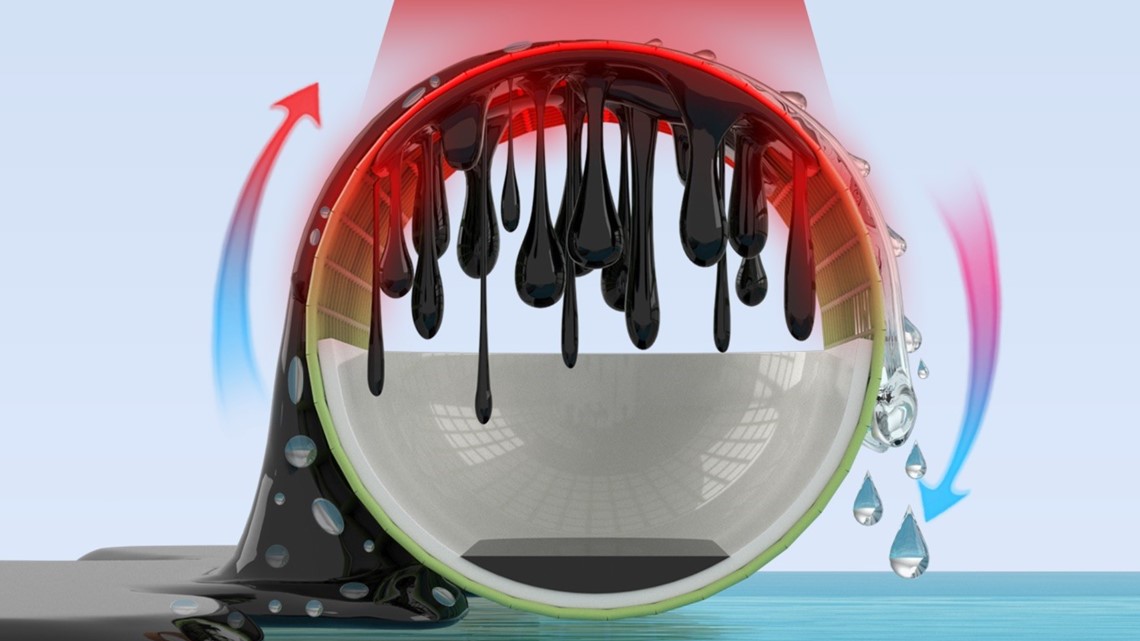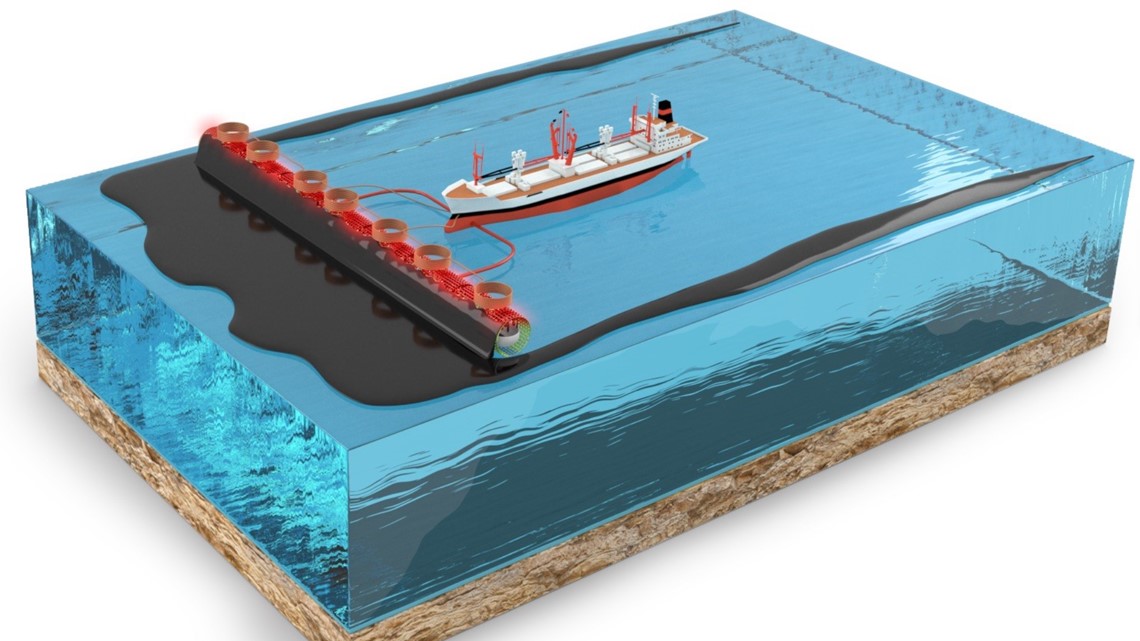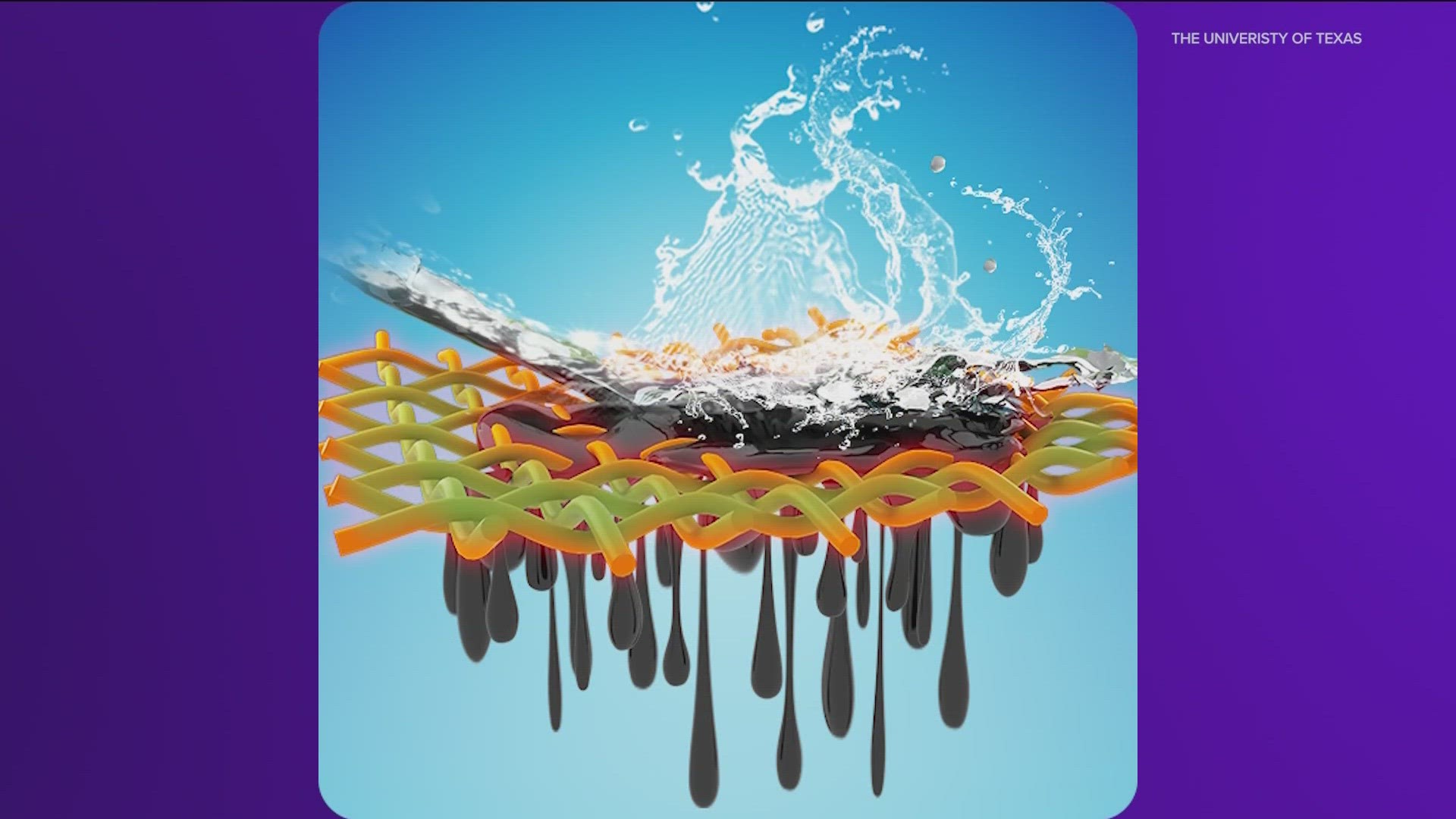AUSTIN, Texas — Researchers at the University of Texas at Austin (UT) are working on new technology that would assist in oil spill cleanups.
Researchers say the new technology would use a dual-layer mesh roller paired with an induction heating technique, with material properties that would allow it to separate oil from water and subsequently remove that oil from the affected area with higher efficiency.
According to researchers, experiments showed the potential to retrieve up to 1,400 kilograms of viscous oil per square meter per hour, which they say is about 10 times more effective than the way oil spills are currently cleaned up.
“When you have a widespread oil spill in the ocean, it slowly diffuses into the water, so how quickly and efficiently you can retrieve the oil has a major impact on the marine environment,” said Guihua Yu, a professor of materials science in the Cockrell School of Engineering’s Walker Department of Mechanical Engineering and Texas Materials Institute.
According to researchers, the rollers could be built to different sizes to deal with spills of different sizes. In practice, boats would pull the rollers across an affected area, where researchers claim they could complete cleanup operations in a day or two.
The gel-coated mesh roller could separate oil in cold seawater on the bottom side and separate viscous oil and water mixtures at the top side of the roller. A device in between the two layers would then work to isolate the separated oil.




The researchers applied non-contact induction heating to the top layer of the roller to supercharge the reaction that separates oil from water. In experiments, they claim to have achieved a separation efficiency of over 99%, essentially meaning that collected oil could be recycled.
“Most of the methods in use today rely on decades-old technology,” Yu said. “I just thought we should be able to do better than that.”
Up next, researchers say they will work on scaling the technology.

